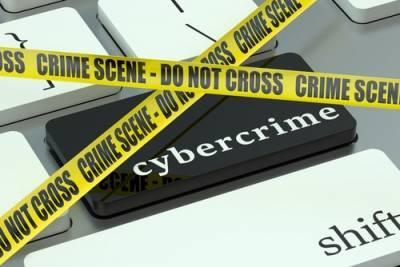Connecticut Cybercrimes
 As technology advances, so, unfortunately, does the gamut of crimes that can be committed with it. Cybercrimes are a broad category of offenses that encompasses generally anything involving a third party’s computer, and while many are considered white-collar crimes, some of them can be the first steps toward violence. If you have been charged with a computer crime in Connecticut, you should expect it to be taken very seriously.
As technology advances, so, unfortunately, does the gamut of crimes that can be committed with it. Cybercrimes are a broad category of offenses that encompasses generally anything involving a third party’s computer, and while many are considered white-collar crimes, some of them can be the first steps toward violence. If you have been charged with a computer crime in Connecticut, you should expect it to be taken very seriously.
The Law Is Broad
Connecticut law governing computer crime is very specific on some counts and very vague on others. The relevant statute lists several broad categories of computer crime, as well as the specific criteria to use when attempting to charge someone with any of these crimes. Despite this, the application of Connecticut’s laws can seem counterintuitive at times, especially when dealing with crimes that involve malice or threat.
For example, someone who commits the crime of cyberstalking or cyberbullying would most likely be charged under Connecticut’s harassment laws, rather than under the specific computer crime laws, even though both the computer and the underlying conduct are key factors in the charge. Computer crimes have specific criteria, and often cyberstalking cases do not rise to that level. Still, it can get confusing to try and discern how you might be prosecuted if you try to handle the issue alone.
Money Matters
In the realm of white-collar crime, the application of Connecticut’s computer crime laws may seem more intuitive. The five different categories - unauthorized access to a computer system, theft of computer services, interruption of computer services, misuse of computer system information, and destruction of computer equipment - can be charged as felonies. A first-degree computer crime conviction can lead to up to 20 years in prison, as a class B felony, but even a third-degree conviction can yield 10 years in prison.
It is possible to defend oneself against a charge of computer crime, most commonly by arguing that you had permission to use the computer system since most of the categories of crime require unauthorized access. Alternatively, another common defense is to show that the charge is more appropriately a civil matter - for example, being accused of a computer crime by a business rival or other party with a proverbial ax to grind. In the right circumstances, with the right help, you can ensure that you have your day in court.
Call a Fairfield County Computer Crimes Attorney
The law surrounding computer crimes in Connecticut is ever-changing, but if you are charged with such a crime, you need an experienced Stamford computer crimes attorney who can help guide you through the process. The Law Offices of Daniel P. Weiner handle these types of cases very often and is ready to work hard to give yours its day in court. Contact our offices today at 203-348-5846 for a free consultation.
Sources:
https://www.cga.ct.gov/current/pub/chap_952.htm#sec_53a-252
https://www.cga.ct.gov/current/pub/chap_952.htm#sec_53a-251







